#big health
Explore tagged Tumblr posts
Text

American school lunch program got worse with Michael Obama. It was poor before then; that tanked the system.
RFKjr has exposed part of the sinister goings on comparing American pasta to Italian Pasta. American pasta gives you the risk of gluten and ciliac disease; Italian pasta makes you lose weight. Who’s to blame? The usual suspects.
524 notes
·
View notes
Text
...the intermediaries—insurers, pharmacies, drug distributors and pharmacy-benefit managers (pbms)—sitting between patients and their treatments. In 2022 the combined revenue of the nine biggest middlemen—call them big health—equated to around 45% of America’s health-care bill, up from 25% in 2013.
Why do they even exist?
155 notes
·
View notes
Text




Source
This entire article is worth the read. Fuck Gilead
#big pharma#hiv#hiv/aids#the left#news#current events#health#health care#capitalism#public health#corporate greed
36K notes
·
View notes
Text
Health
Illness that is of a chronic nature has a huge impact on individuals separately, as well as within the context of family systems. Health care systems, being “systems”, have an inability to care for patients on an individual basis. While this impersonal method of heath care is promoted as cost effective, it increases costs in the long run by not holistically treating the client. Impersonal health…
0 notes
Text
"The Biden Administration last week [early December, 2023] announced it would be seizing patents for drugs and drug manufacturing procedures developed using government money.
A draft of the new law, seen by Reuters, said that the government will consider various factors including whether a medical situation is leading to increased prices of the drug at any given time, or whether only a small section of Americans can afford it.
The new executive order is the first exercise in what is called “march-in-rights” which allows relevant government agencies to redistribute patents if they were generated under government funding. The NIH has long maintained march-in-rights, but previous directors have been unwilling to use them, fearing consequences.
“We’ll make it clear that when drug companies won’t sell taxpayer funded drugs at reasonable prices, we will be prepared to allow other companies to provide those drugs for less,” White House adviser Lael Brainard said on a press call.
But just how much taxpayer money is going toward funding drugs? A research paper from the Insitute for New Economic Thought showed that “NIH funding contributed to research associated with every new drug approved from 2010-2019, totaling $230 billion.”
The authors of the paper continue, writing “NIH funding also produced 22 thousand patents, which provided marketing exclusivity for 27 (8.6%) of the drugs approved [between] 2010-2019.”
How we do drug discovery and production in America has a number of fundamental flaws that have created problems in the health service industry.
It costs billions of dollars and sometimes as many as 5 to 10 years to bring a drug to market in the US, which means that only companies with massive financial muscle can do so with any regularity, and that smaller, more innovative companies can’t compete with these pharma giants.
This also means that if a company can’t recoup that loss, a single failed drug can result in massive disruptions to business. To protect themselves, pharmaceutical companies establish piles of patents on drugs and drug manufacturing procedures. Especially if the drug in question treats a rare or obscure disease, these patents essentially ensure the company has monoselective pricing regimes.
However, if a company can convince the NIH that a particular drug should be considered a public health priority, they can be almost entirely funded by the government, as the research paper showed.
Some market participants, in this case the famous billionaire investor Mark Cuban, have attempted to remedy the issue of drug costs in America by manufacturing generic versions of patented drugs sold for common diseases."
-via Good News Network, December 11, 2023
#united states#us politics#biden administration#executive order#prescription drugs#medical news#healthcare#healthcare access#biden#big pharma#drug prices#public health#nih#national institutes of health#good news#hope
10K notes
·
View notes
Text


Chop chop chop
#clayart#one piece#op#tony tony chopper#roronoa zoro#yup forgot tumbr existed again my b#i want to use it more than twt but im set in my old ways rip#anyways i took a big fat break due to health and now im back so YIPPIE#just shoving stuff on every platform seeing how it goes
13K notes
·
View notes
Text

Little visit
#tloz#a link to the past#my art#this is a couple weeks old but my wonderful health has doomed me to sickness and so still no new art 😔#feeling pathetic and miserable today I just wanna get back to doing stuff and feeling alright...#link#anyway I love the little duck still#I kinda forgot if the stump started growing or if I just imagined that but oh well#I said little duck but it's way too big isn't it... this is little Link it's ok it's ok
1K notes
·
View notes
Text




Delivering mail to the furthest corners of the server ✉✈


#IF YOURE WONDERING WHERE IVE BEEN BTW THIS HAS TAKEN UP SOOO MUCH OF MY TIME IM SORRY I BECAME A HERMIT#i spent two weeks learning cpm and blockbench to make this! every animation is made from scratch#there's still a lot more to do too! but im very happy with how it's turned out#I also whipped up an origins datapack that allows people to ride on my back and to scale the eye height and stuff properly#like uhh. i still wanna make a blink anim. and a low health state that makes an engine catch fire. and clean up some anims im unhappy with#if anyone knows how the animated textures function works on cpm btw... pls let me know ;_;#big shoutout to hazel for helping me with a lot of the technical issues btw! <3#minecraft#modded minecraft#mineblr#aberrations#oc:strata#airplane dragon
5K notes
·
View notes
Text
Do you prefer me pregnant or not ?
Dm if you ready for a session
#huge pregnant belly#preggo kink#preggophilia#pregnancy#pregnant#pregnant kink#pregn#pregnant fantasy#big pregnant belly#preggie#pregnant bump#super preggo#pregnancy health#pregnancy belly
651 notes
·
View notes
Text
Drake Siblings
Have I read this prompt somewhere or was this a fever dream from my bored mind.
What if, now hear me out.
What if we bring up Dana Winters-Drake (whose confirmed to at least be alive in the DC verse but no one knows where she actually is)
What if instead of when she had a mental breakdown and getting committed to an Bludhaven clinc she wandered away before anyone noticed and by the time Tim or anyone did notice a lot of stuff started happening at once in both Gotham and Bludhaven (Steph dying, The Bludhaven crisis, etc etc)
Tim still tries to find her though but even with best resources it was like she just disappeared into the wilderness and the stress of trying to handle more and more problems get worse.
So when out of the blue, a couple of years later, he gets a call from an unknown number. On his private, only for friends and family, phone and when he answers he meet with a young girls voice on the other end.
A very young, maybe six or seven, girl who informs him about his apparently half-brother Danny Drake-Fenton. And how she loves Danny so, so, so much but knows her home is dangerous for him to be in.
Tim is stunned and before he could question her, she says Danny is Dana and Jack's baby and that her parents had adopted him years ago and put Dana's stuff that the hospital had away for him to look at when he was older but she just had to fight off their lunch from eating her brother and she knows he needs a better place to live and so she snooped around and found Dana's diary and that she had to unscramble the nonsense Dana wrote and found Tim's number with the words 'tell him about his brother Danny' hidden in it. And-
But before she could keep rambling she hears Danny screaming "JAZZY THE MILK WENT BAD AGAIN AND HISSED AT ME!"
Tim is left with silence after hearing Jazz yell to Danny to lock the fridge and step out of the kitchen as she gets the bat.
#danny phantom#danny fenton#crossover#dp x dc#blue rambles#danny phantom dc#writing ideas#random idea#dpxdc#jazz fenton#tim drake#danny and tim are half brothers#dana Winters-Drake was pregnant when she disappeared#she was out of her mind until she found out and tried her best to regain control but it was hard#she had in and out episodes#she wanted to contact Tim but knew he was still in Gotham and she just coulnt due to episodes of her mental health failing#she was found months later in labor and rushed to a hospital and Danny somehow came out healthy#small but healthy#Dana however lasted a few more hours before passing away from the birth#weeks laters Danny is adopted or fostered out#Dana wrote in diary but scramble and scribbled during her episodes#Jazz finds it and being the smarty she is starts figuring it out#it also set her on her path to understand the human mind#Tim gets to be a big brother#not just for Danny though#hes gonna take Jazz in too after he finds out about how bad the home life is#will Danny still become Phantom though?#maybe#maybe Tim gets there and Jack and Maddie finished the portal way earlier than canon and Danny being curious goes to see#and comes down the stairs to see his baby brother die and then come back
2K notes
·
View notes
Text

409 notes
·
View notes
Text
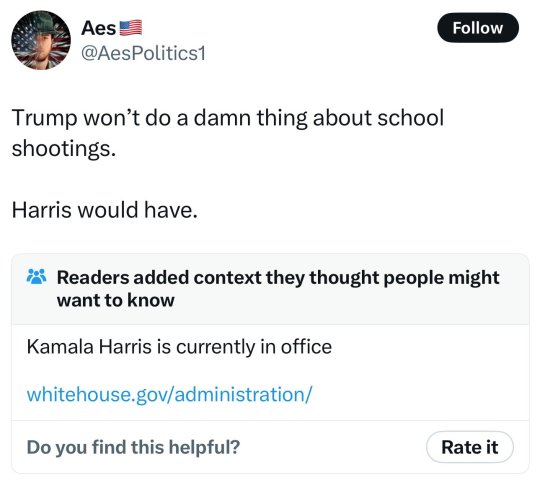
#donald trump#democrats#president trump#kamala harris#trump 2024#trump#democratic party#wisconsin#school shooters#far left#leftist#dems#police#police officer#christianity#christian living#christian school#abundant life#christian faith#faith#mass shooters#mental health#mental illness#evil#bad news#madison wisconsin#university of wisconsin#wisconsin badgers#big 10#disturbing
474 notes
·
View notes
Text

Source
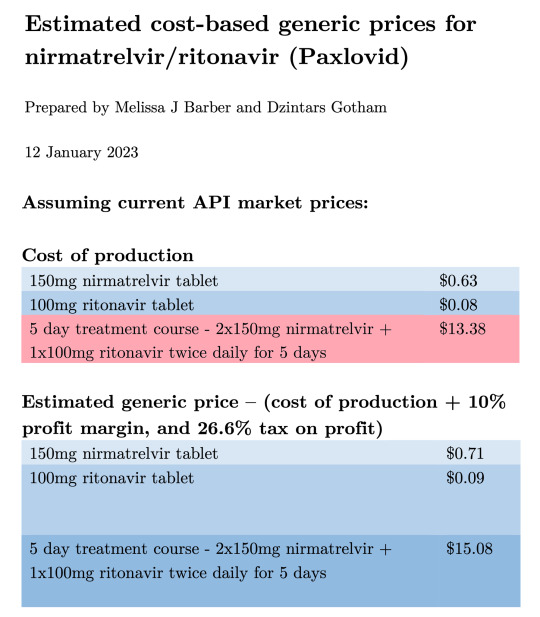
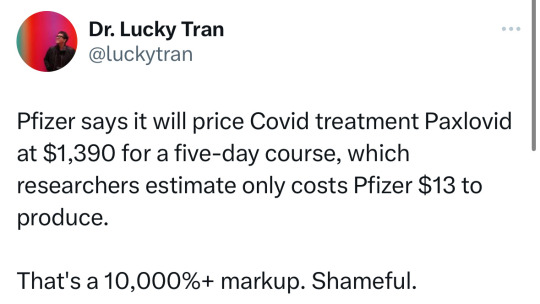
Source
11K notes
·
View notes
Text
The Scary Thing About Being Autistic

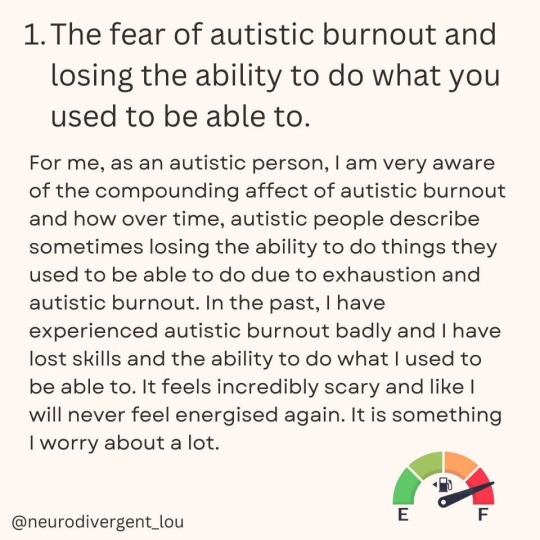
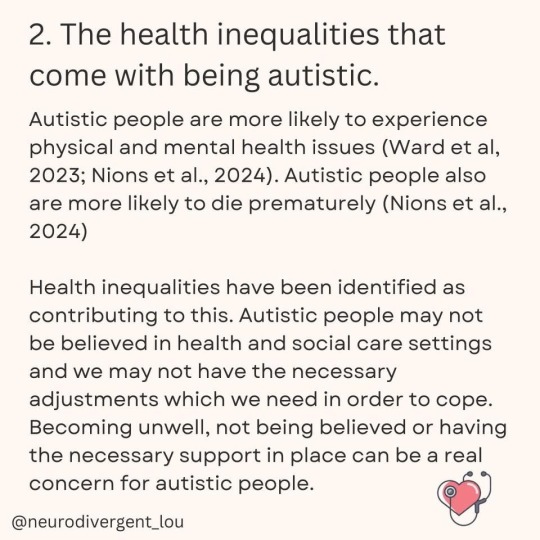
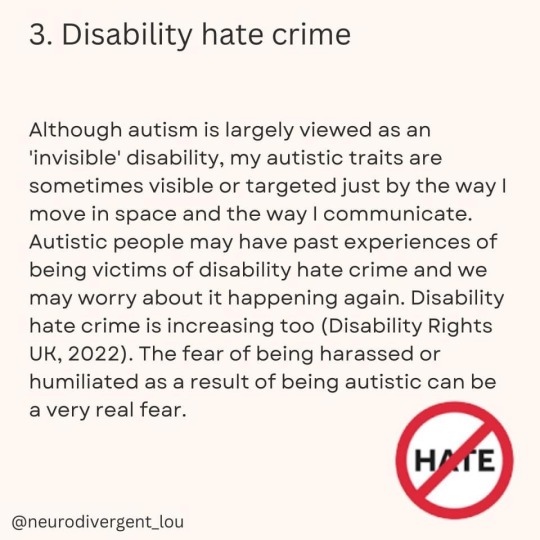
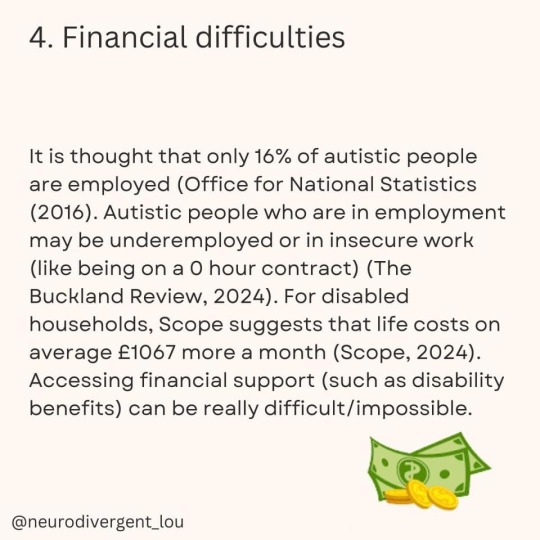


Neurodivergent Lou
#autism#actually autistic#scary things about being autistic#this is really hard for me#especially the burnout and financial issues#being misunderstood is a big one too#I also have epilepsy with is something autistics can have#health#mental health#neurodiversity#feel free to share/reblog#Neurodivergent Lou (Facebook)
465 notes
·
View notes
Text
"The Biden administration on Thursday [August 15, 2024] released prices for the first 10 prescription drugs that were subject to landmark negotiations between drugmakers and Medicare, a milestone in a controversial process that aims to make costly medications more affordable for older Americans.
The government estimates that the new negotiated prices for the medications will lead to around $6 billion in net savings for the Medicare program in 2026 alone when they officially go into effect, or 22% net savings overall. That is based on the estimated savings the prices would have produced if they were in effect in 2023, senior administration officials told reporters Wednesday.
The Biden administration also expects the new prices to save Medicare enrollees $1.5 billion in out-of-pocket costs in 2026 alone.
“For so many people, being able to afford these drugs will mean the difference between debilitating illness and living full lives,” Chiquita Brooks-LaSure, administrator for the Centers for Medicare & Medicaid Services, told reporters. “These negotiated prices. They’re not just about costs. They are about helping to make sure that your father, your grandfather or you can live longer, healthier.”
It comes one day before the second anniversary of President Joe Biden’s signature Inflation Reduction Act, which gave Medicare the power to directly hash out drug prices with manufacturers for the first time in the federal program’s nearly 60-year history.
Here are the negotiated prices for a 30-day supply of the 10 drugs, along with their list prices based on 2023 prescription fills, according to a Biden administration fact sheet Thursday.
What Medicare and beneficiaries pay for a drug is often much less than the list price, which is what a wholesaler, distributor or other direct purchaser paid a manufacturer for a medication before any discounts...

The administration unveiled the first set of medications selected for the price talks in August 2023, kicking off a nearly yearlong negotiation period that ended at the beginning of the month.
The final prices give drugmakers, which fiercely oppose the policy, a glimpse of how much revenue they could expect to lose over the next few years. It also sets a precedent for the additional rounds of Medicare drug price negotiations, which will kick off in 2025 and beyond.
First 10 drugs subject to Medicare price negotiations
Eliquis, made by Bristol Myers Squibb, is used to prevent blood clotting to reduce the risk of stroke.
Jardiance, made by Boehringer Ingelheim and Eli Lilly, is used to lower blood sugar for people with Type 2 diabetes.
Xarelto, made by Johnson & Johnson, is used to prevent blood clotting, to reduce the risk of stroke.
Januvia, made by Merck, is used to lower blood sugar for people with Type 2 diabetes.
Farxiga, made by AstraZeneca, is used to treat Type 2 diabetes, heart failure and chronic kidney disease.
Entresto, made by Novartis, is used to treat certain types of heart failure.
Enbrel, made by Amgen, is used to treat autoimmune diseases such as rheumatoid arthritis.
Imbruvica, made by AbbVie and J&J, is used to treat different types of blood cancers.
Stelara, made by Janssen, is used to treat autoimmune diseases such as Crohn’s disease.
Fiasp and NovoLog, insulins made by Novo Nordisk.
In a statement Thursday, Biden called the new negotiated prices a “historic milestone” made possible because of the Inflation Reduction Act. He specifically touted Vice President Kamala Harris’ tiebreaking vote for the law in the Senate in 2022.
Harris, the Democratic presidential nominee, said in a statement that she was proud to cast that deciding vote, adding there is more work to be done to lower health-care costs for Americans.
“Today’s announcement will be lifechanging for so many of our loved ones across the nation, and we are not stopping here,” Harris said in a statement Thursday, noting that additional prescription drugs will be selected for future rounds of negotiations."
-via CNBC, August 15, 2024
#public health#healthcare#united states#us politics#biden#harris#kamala harris#medicare#medicaid#healthcare accessibility#prescription drugs#big pharma#insulin#good news#hope
3K notes
·
View notes
Text

"The intruder"
#fantasy#haelumians#personal art#digital art#humanoid#wings#monster#digital painting#nature#I did a big steppy for my mental health today#this summer my family's cottage burned down and it was my muse#for a long time it felt wrong to draw cozy homes and blooming plants#when all I had in my mind was blackened walls and the smell of burnt plastic#I was scared I would have never been able to do this ever again#but today I decided that if anyone was gonna pull me out of this sadness that was me
2K notes
·
View notes